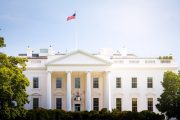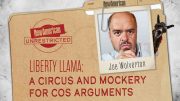
“America does not have a functioning democracy at this point in time,” former President Jimmy Carter (shown) said this week, according to a report in the German newspaper Der Spiegel. Carter was quoted as having made that remark at a closed-door meeting of Atlantic Bridge, a research and education organization supporting cooperation between the United States and Great Britain on political, economic, and defense issues. The former president reportedly said the National Security Agency’s invasion of privacy has gone too far, as he defended that actions of Edward Snowden, the American now seeking asylum in Russia after leaking classified documents revealing the massive NSA interception of communications between citizens and among government officials worldwide.
The English translation of Carter’s remarks was published in the online news source Inquisitr.com. No American media outlets reported on the closed meeting and it was not clear where Der Spiegel got its information, Inquisitr noted. But both Inquisitr and Huffington Post, which also carried the story, noted that the quotes were consistent with previous published remarks by the former president.
In June, Huffington Post noted, Carter addressed the Snowden controversy in an interview with CNN after the 29-year-old intelligence analyst had flown from Hong Kong to Moscow in his quest for asylum from the U.S. government that is seeking to prosecute him for espionage and theft of government property.
“He’s obviously violated the laws of America, for which he’s responsible,” Carter said at that time, “but I think the invasion of human rights and American privacy has gone too far.” The Georgia Democrat also said nations that were offering asylum to Snowden were acting within their rights. “I think that the secrecy that has been surrounding this invasion of privacy has been excessive, so I think that the bringing of it to the public notice has probably been, in the long term, beneficial,” Carter said.
Snowden has been described by the NSA as a systems administrator employed by Booz Allen Hamilton, a contractor that worked on the secret agency’s PRISM program for intercepting and storing billions of telephone, Internet, and other electronic messages daily. His revelation and documentation of the program through classified documents he gave last month to the British publication The Guardian and to the Washington Post made headlines around the world and caused diplomatic strains between the United States and other nations when it was revealed that the massive surveillance program included spying on other governments.
Snowden fled his Hawaiian home and turned up at a secret location in Hong Kong, where he acknowledged in an interview with The Guardian that he was the source of the news leak that had blown the secrecy of the NSA program and had U.S. officials claiming disclosure of the classified information could help terrorists escape detection.
Since his arrival in Russia on June 23, Snowden has reportedly been holed up in a Moscow airport while trying to arrange an escape to one of the Latin American countries offering asylum from prosecution by the United States. His ability to travel, however, is hindered by the fact that the U.S. State Department has revoked his passport. He has applied for temporary asylum in Russia, but the United States has warned of serious consequences to U.S.-Russian relations if asylum is granted.
Carter’s assessment of the Snowden affair is in sharp contrast with the Obama administration’s position and with members of Congress including House Speaker John Boehner (R-Ohio) and Dianne Feinstein (D-Calif.), chairman of the Senate Intelligence Committee, who have accused Snowden of treason. Sen. Lindsey Graham (R-S.C.) has said Snowden should be hunted “to the ends of the earth” and former Vice President Dick Cheney has called the systems analyst a “traitor.”
Earlier this week, former U.S. Senator Gordon Humphrey, a New Hampshire Republican, sent an email message of support to Snowden, calling the NSA surveillance program a “massive violation of the United States Constitution.”
Photo of Jimmy Carter: AP Images




